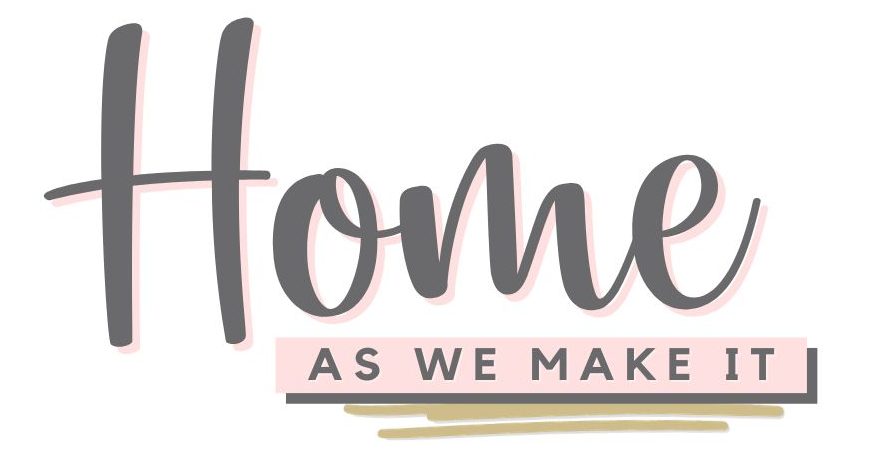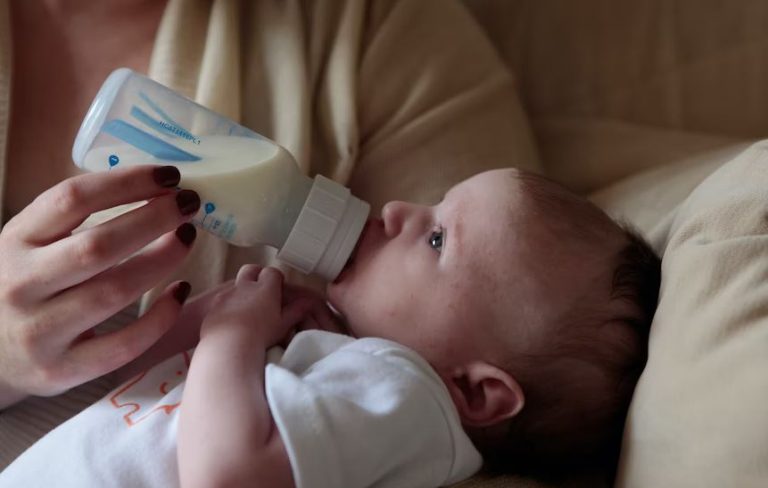First Days At Home: Essential Tips For Newborn Care
The first few days at home with your little one can be both exciting and overwhelming. As a new parent, you may feel unsure about how to care for your baby’s every need. However, with the right guidance and support, you can confidently navigate this new chapter in your life.
In this article, we will provide essential tips for newborn care during those first few days at home. From feeding and sleeping to bathing and bonding, we will cover all the basics to ensure that you are equipped with the knowledge and skills needed to care for your baby in a loving and nurturing way.
Note: This post may contain affiliate links, which means if you buy from my link I might make a small commission. This does not affect the price you pay. See the full affiliate disclosure here.
Whether you are a first-time parent or have experience caring for newborns, these tips will help you create a strong foundation for your baby’s health and development.
So, let’s dive in!

Feeding Essentials
You’ll need to make sure your baby is getting enough nourishment, so here are some feeding essentials to keep in mind.
If you choose to breastfeed, know that it provides numerous benefits for both you and your newborn. Breast milk contains all the necessary nutrients, antibodies, and hormones to help protect your baby from illnesses and infections while promoting healthy growth and development. It also helps establish a strong bond between mother and child.
On the other hand, if you opt for bottle-feeding techniques, make sure to choose a formula that best suits your baby’s needs. Follow the instructions carefully when preparing the formula and ensure that everything is clean and sterilized before use.
When feeding your newborn, hold them close with their head slightly elevated to prevent choking or discomfort. Remember to pace the feeding by taking breaks in between burps or switches of breasts/bottles as needed.
Taking care of your little one’s nutritional needs will help set a solid foundation for their overall health and well-being.
Sleeping Tips
As a new parent, you may feel overwhelmed when it comes to your baby’s sleep. But don’t worry!
By following some safe sleep practices, establishing a sleep routine, and understanding newborn sleep patterns, you can help ensure that your little one gets the rest they need.
Remember to be patient with yourself and your baby as you navigate this new experience together.
Safe Sleep Practices
It’s important to prioritize safe sleep practices for your baby. Your newborn is still adjusting to the world outside of the womb, and ensuring they have a safe sleeping environment can make all the difference in their development.
To start off, make sure you’re swaddling your baby correctly. Swaddle techniques vary depending on your baby’s age and size, so be sure to research which technique works best for your little one.
Another crucial aspect is room temperature. Keep the room at a comfortable temperature between 68-72 degrees Fahrenheit. This will help prevent overheating or chilling, both of which can be dangerous for your newborn.
Remember to also place your baby on their back when putting them down to sleep, as this reduces the risk of SIDS (Sudden Infant Death Syndrome).
By prioritizing safe sleep practices, you’re giving your baby a healthy start in life.
Establishing a Sleep Routine
Creating a consistent sleep routine for your little one can bring a sense of comfort and security to both you and your baby. As much as possible, try to establish a predictable bedtime and nap schedule that works for your family’s lifestyle.
Keep in mind that newborns need to sleep a lot – up to 16-17 hours per day in the first few months of life! However, be prepared for sleep regression around 4 months old, when your baby may start waking up more frequently at night or having difficulty falling asleep.
This is normal and temporary, but it can be frustrating for parents who have already established a routine. Be patient with yourself and your baby during this time, and remember that every child is different – what works for one family may not work for another.
Understanding Newborn Sleep Patterns
Understanding your newborn’s sleep patterns can help you better anticipate their needs and establish a healthy sleep routine for both you and your baby.
Newborns spend most of their time sleeping, but it’s not the same as adult sleep. They experience multiple phases of REM sleep, which is important for brain development. However, this also means that they may wake up frequently during the night.
It’s crucial to remember that newborns’ sleep patterns are constantly changing, and they may experience sleep regressions at various stages of their development. These periods can be frustrating for parents who have established a routine only to have it disrupted by sudden changes in their baby’s sleeping habits.
But don’t worry; these regressions are normal and typically resolve on their own after a few weeks. Just keep an eye out for signs that your baby is tired or overstimulated, and adjust your routine accordingly to ensure they get the rest they need.

Bathing and Hygiene
Congratulations on the arrival of your newborn! It’s important to know about bathing and hygiene as you start learning about caring for your little one. You’ll need to learn about both sponge bathing and tub bathing, as well as diaper changing and skin care.
Additionally, you’ll want to be aware of how to properly care for the cord stump until it falls off. Don’t worry – with practice, you’ll become more confident in providing these essential aspects of newborn care.
Sponge Bathing and Tub Bathing
For keeping your little one clean and fresh, it’s important to know the proper techniques for sponge bathing and tub bathing.
Sponge bathing is recommended for newborns until their umbilical cord stump falls off, which usually takes about 1-4 weeks.
You can use a soft washcloth or sponge dipped in warm water to gently clean your baby’s face, neck, arms, legs and diaper area. Make sure to clean the folds of skin carefully as they’re prone to trapping dirt and moisture.
On the other hand, you can start tub bathing once the umbilical cord stump has fallen off and healed completely. You can use a small plastic tub designed especially for babies or simply fill up your bathtub with two inches of warm water.
Always check the temperature of the water before placing your baby in it by dipping your elbow or wrist into it – it should feel lukewarm to touch, not too hot or cold. Remember that newborns don’t need daily baths; 2-3 times per week is enough until they become more mobile and start crawling around in dirtier environments!
Diaper Changing and Skin Care
Let’s keep your baby comfortable and happy by learning the best ways to change diapers and take care of their delicate skin.
First things first, make sure you have all the necessary supplies within reach before starting a diaper change: clean diapers, wipes, diaper cream (if needed), and a changing pad or towel.
When changing your baby’s diaper, always remember to wipe from front to back to prevent any infection.
Diaper rash prevention is also important when it comes to taking care of your baby’s skin. Change your baby’s diaper frequently as leaving them in a wet or soiled one for too long can lead to irritation and rashes.
Additionally, choose safe skincare products that are free from harmful chemicals and fragrances that can irritate your baby’s sensitive skin. Always do a patch test if trying out new products and consult with your pediatrician if you notice any unusual changes in your baby’s skin.
Remember, keeping your baby dry, clean, and well-moisturized will help maintain healthy skin for a happy little one!

Cord Stump Care
You need to take extra care of your baby’s cord stump to prevent infection and ensure their well-being. Here are some tips for proper cord stump cleaning and umbilical care:
- Keep the area clean and dry: Make sure the diaper doesn’t cover the cord stump, so it can get enough air circulation. Use a soft cloth with warm water to gently clean around the stump twice a day. Afterward, pat dry with a clean cloth.
- Avoid pulling or picking at the cord: The cord will naturally fall off within two weeks of birth, but it may bleed slightly before then. Don’t try to pull or pick at it, as this increases the risk of infection.
- Watch out for signs of infection: If there’s redness, swelling, pus, or foul-smelling discharge around the stump area, contact your pediatrician immediately.
Remember that taking care of your baby’s umbilical area is crucial for preventing infections and promoting healing. Be gentle when cleaning around the cord stump and keep an eye out for any abnormalities in its appearance. With proper care, your little one should be on their way to a healthy start!
Bonding and Soothing Techniques
Bonding and soothing your newborn is an essential part of caring for them during their first days at home. It’s a beautiful experience that you can use to build a strong connection with your baby.
One of the most effective ways to bond with your little one is through skin-to-skin contact. This type of physical touch helps regulate their body temperature, heart rate, and breathing, while also promoting feelings of security and comfort.
Another great way to soothe your newborn is by giving them a gentle massage. Massaging your baby’s tiny body can help calm them down when they’re feeling fussy or overwhelmed. You don’t need any special training to do this: just make sure that you use gentle pressure and focus on areas like their back, tummy, arms, and legs.
Remember that every baby is unique, so experiment with different techniques until you find what works best for your little one.
By using these tips to bond and soothe your newborn, you’ll be laying the foundation for a happy and healthy relationship with them that will last a lifetime.

Postpartum Care
Now that you’ve started bonding with your newborn, it’s important to take care of yourself as well. Postpartum recovery can be challenging, but with proper self-care and emotional support, you’ll be able to navigate this phase smoothly.
Here are some essential tips for postpartum care:
- Rest is crucial: Your body has gone through a lot during pregnancy and childbirth. It’s important to give yourself time to heal by resting as much as possible. Don’t hesitate to ask for help from family or friends so that you can get the rest you need.
- Eat healthy foods: A balanced diet will help your body recover faster and provide the energy you need for taking care of your baby. Include plenty of fruits, vegetables, whole grains, and lean proteins in your meals.
- Seek emotional support: The postpartum period can be overwhelming emotionally as well as physically. Talk to someone who understands what you’re going through, whether it’s a partner, friend, or healthcare provider.
Remember that taking care of yourself is just as important as taking care of your baby during these first few weeks at home. By following these simple tips for postpartum recovery and seeking emotional support when needed, you’ll be better equipped to handle the challenges ahead with confidence and ease!
Conclusion
Now that you’ve gone through your first days at home with your newborn, it’s time to relax and enjoy the moments.
Remember, taking care of a newborn can be overwhelming and challenging, but with practice and patience, it’ll become easier for you.
Keep in mind that every baby is unique and has their own individual needs, so don’t hesitate to ask for help or advice from family members or healthcare professionals.
As you navigate through the first few weeks of parenthood, prioritize your self-care as well.
Take breaks when needed, get plenty of rest and nourishment, and don’t forget to celebrate every milestone reached by your little one.
You’re doing an amazing job as a new parent; just take things one day at a time and cherish this special time with your bundle of joy.






